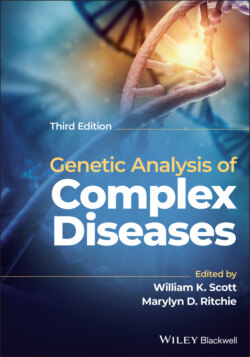Читать книгу Genetic Analysis of Complex Disease - Группа авторов - Страница 28
Keys to a Successful Study Foster Interaction of Necessary Expertise
ОглавлениеTo appropriately carry out any disease gene discovery study, one must use techniques from five different areas of expertise (Figure 1.3). These areas are clinical evaluation, molecular genetics, statistical genetics, bioinformatics, and epidemiology. The first provides the necessary diagnostic and participant recruitment skills needed to define the phenotype and help collect samples and data. The second provides genotyping, sequencing, and functional analysis skills necessary to help locate and identify the genes and variants of interest and evaluate their functional consequences. The third provides the statistical and analytical framework for the proper design of the study and the analysis of the generated data. The fourth provides computational and algorithmic expertise for the processing, storage, and dissemination of large‐scale datasets. And the fifth provides expertise to incorporate environmental variables and apply results at the population level.
The initial focus of gene discovery on single‐gene disorders resulted in a linear approach (Figure 1.1) that could be implemented by a single investigator with expertise in one of these areas, with periodic consultation with colleagues from other disciplines as needed. Complex traits require a multidisciplinary approach that is not easily implemented by a single investigator, and given differences in genetic architecture, available samples, and research questions, different approaches (and thus different teams) may need to be formed for each trait. Thus, experts in each of these fields must be intimately involved in all aspects of the study. Even with all this expertise in place, it is essential that the study not be divided into separate components with little interaction. For example, statistical geneticists and epidemiologists should be involved in the discussion of the clinical phenotype to determine the effect of potential changes to the phenotype definition on the genetic study design, screening approach, and statistical power.
Figure 1.3 Components of a complex disease study and expertise needed to contribute.
